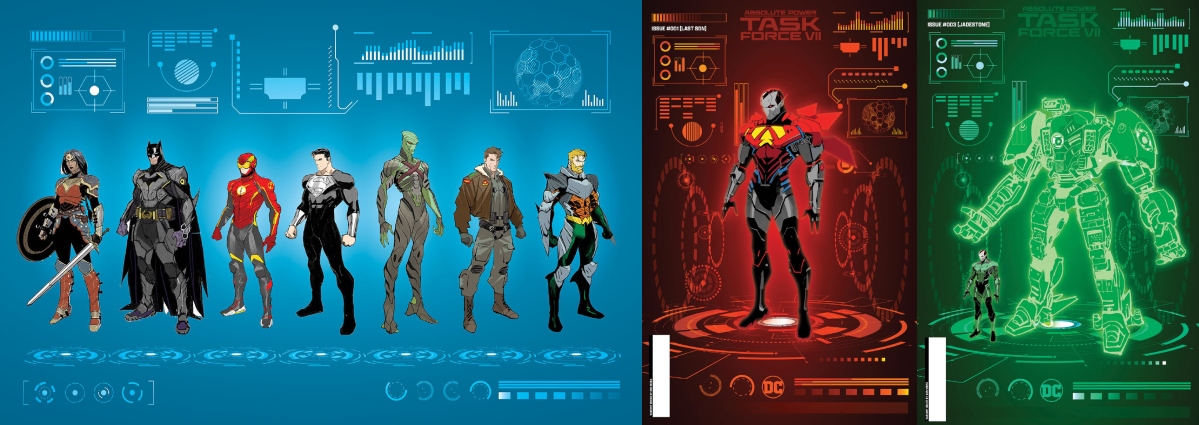Representation of Asians in Hollywood is a real problem. Unless a character has some sort of stereotypical Asian aspect or backstory to them, the probability is high that they will be portrayed by a white actor. From the perspective of an industry that’s risk averse, we get where they’re coming from, but that doesn’t make things any better for Asian actors. To make matters worse, whenever there is a character that could realistically be portrayed by an Asian actor, Hollywood tends to “whitewash” it. Such a thing was done in the recent Ghost in the Shell, which was based on a Japanese property and starred Scarlett Johansson.
The movie itself was a letdown, and as such, that left it wide open for criticism of not only casting a white woman in the lead role of a character with Japanese origin, but of taking pains to literally whitewash the Japanese Motoko Kusanagi into the white Major in the film’s plot itself. It’s with this perspective that we’re going into Death Note, a Netflix adaptation of the manga of the same name from horror director Adam Wingard.
We’ve only seen a teaser of the film so far, and already it’s quite the departure from the source material in style and tone. But of course, for some, the focus shifts to the absence of Japanese actors in the film. The lead character has changed from Light Yagami to Light Turner, and the genius detective L is black. Between the casting, setting, and change in style and tone, some fans found a lot to contest.
RELATED: How Ghost In The Shell Made Its Own Whitewashing Controversy Worse
Check out the post below:
 Director Adam Wingard took to Twitter to respond to the outburst:
Director Adam Wingard took to Twitter to respond to the outburst:
“While sharing similarities to the original characters and story this is a whole new take on Death Note with many departures.”
Another fan didn’t take kindly to this statement, and when Wingard said all criticisms thus far are based on assumptions. He was met with the following:
“Plenty to criticize based on known facts, like the erasure of Japanese culture+people from the story and your glorification of gore+nudity.”
That reference to the “glorification of gore+nudity” was in reference to an interview last year, where Wingard stated:
“That was the cool thing about it, because it’s an anime film. So, technically, it’s a cartoon that you’re bring to life. To me, the thing about anime is that it’s so adult-oriented. I remember going to Suncoast growing up and you see Akira there with the little ‘Not for Kids’ sticker on it. That always made an impact on me. So, doing my first live-action anime thing, to me it was important that you have those adult themes. So, it’s got nudity, it’s got swearing, it’s got a ton of violence.”
This admittedly rubbed us the wrong way a bit, as Death Note — while dark in tone and subject — had no sex, nudity, or over-the-top violence.
 In response to the critical post, Wingard said the following over the course of several tweets:
In response to the critical post, Wingard said the following over the course of several tweets:
“There is no conspiracy to remove Japanese culture from Death Note. Its [sic] a fresh version of the story set in Seattle. Also see The Departed. When moving the setting of Death Note to America we of course made the movie about America. Its not just a copy and paste situation here.
“1. In an early interview I mentioned Death Note having gore nudity and swearing. None of it is gratuitous or focus point of the film.
“2. What I was trying to illustrate is we werent [sic] being forced into making a watered down Dragonball [Evolution] pg cheese fest.
“3. If you don’t believe me watch the film when it comes out. :)”
Wingard does bring up a good point regarding The Departed — a film based on the Hong Kong film Infernal Affairs. Martin Scorsese adapted the flick and changed the setting to Boston — to critical acclaim. Though, the reality is, it does seem like we’re in a bit of a no-win situation here. When carrying something over from another country, it makes sense to adapt the story to fit the country where it’s being released. That being said, you are eliminating the opportunities for Asian actors in this country in the process, who also have a stake in Hollywood. There’s not necessarily a right or wrong, but that is the unfortunate side effect.
In regards to the rest of it, my opinion is currently in a holding pattern. We don’t have enough information regarding the film to actually say anything yet. As such, I’ll wait for the new set of trailers and marketing, as well as the actual release of the flick before I cry foul just yet. As it stands, I am much more in favor of changing the setting of a film along with its cast than I am with keeping the original Japanese setting and filling in the lead roles with white actors.
What do you think? Was adapting the setting and cast of the film the right way to go, or are you reserving judgment? Let us know your thoughts down below!
Death Note hits Netflix on August 25, 2017.
Don’t forget to share this post on your Facebook wall and with your Twitter followers! Just hit the buttons on the top of this page.
SOURCE: Adam Wingard (via Twitter)
-
Could it be Solo: A Star Wars Story? https://t.co/eiCANtvUVR

 FOR FANBOYS, BY FANBOYS
Have you checked out LRM Online’s official podcasts and videos on The Genreverse Podcast Network? Available on YouTube and all your favorite podcast apps, This multimedia empire includes The Daily CoG, Breaking Geek Radio: The Podcast, GeekScholars Movie News, Anime-Versal Review Podcast, and our Star Wars dedicated podcast The Cantina. Check it out by listening on all your favorite podcast apps, or watching on YouTube!
Subscribe on: Apple Podcasts | Spotify | SoundCloud | Stitcher | Google Play
FOR FANBOYS, BY FANBOYS
Have you checked out LRM Online’s official podcasts and videos on The Genreverse Podcast Network? Available on YouTube and all your favorite podcast apps, This multimedia empire includes The Daily CoG, Breaking Geek Radio: The Podcast, GeekScholars Movie News, Anime-Versal Review Podcast, and our Star Wars dedicated podcast The Cantina. Check it out by listening on all your favorite podcast apps, or watching on YouTube!
Subscribe on: Apple Podcasts | Spotify | SoundCloud | Stitcher | Google Play




